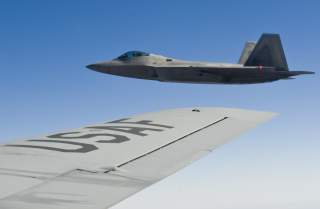Why There is Only One Option to Deal with North Korea: A Bloody War
Yes, you read that right.
4. Chinese and Russian assertiveness
Aware that they cannot yet challenge the U.S. militarily, China’s intervention is restricted to the far north to stem the flow of refugees and to deter American forces from pushing too close to the border. Nevertheless, China does seek to tie down the U.S. in yet another quagmire by quietly supporting North Korean insurgents, while fortifying their own positions on Korean territory. Beijing also makes clear to Seoul that with the peninsula unified the U.S. should have no long-term role, and that Chinese withdrawal is contingent on America’s own. Meanwhile Russia, scarcely believing it’s good fortune, employs salami tactics to push into the Baltic States, knowing that America can ill-afford a conflict on two continents.
As with Option One, there are other possibilities, but these are matters of degree. One or two additional nuclear weapons could be detonated in allied territory, or North Korea’s military could be less degraded in the initial attack than anticipated. Finally, while the chance of direct Chinese intervention is low given the current military balance, there are ways this could occur and must not be ruled out. Any such intervention would almost certainly escalate into World War III, as Russia would also take advantage of this and invade the Baltic countries overtly. Even if none of this occurs, the U.S. should expect combat losses exceeding a hundred thousand – to say nothing of the millions of North Koreans dead, both military and civilian.
This analysis has rightly focused on the negative consequences of each decision; however, it is necessary to also assess potential benefits. With Option One there are none. But war would: prove that nuclear weapons do not confer unfettered license to threaten world peace, unify an artificially divided people, and extinguish a regime that is an affront to the human race. Moreover, depending on how it progressed, the war could bolster America’s long-term position in Asia by proving America’s ability to sustain high-intensity operations in the Western Pacific and giving China pause.
Despite potential upsides, the prospect of such a conflict should greet no-one with any kind of enthusiasm. And yet, when having to choose between a mutual deterrence relationship with North Korea and war on the peninsula, then the latter is the only viable option.
Crispin Rovere is a member of the Australian Labor Party and previous convenor of the ACT ALP International Affairs Policy Committee. Formerly he was a Ph.D. candidate at the ANU's Strategic and Defence Studies Centre (SDSC) and previously worked in Secretariat of the Asia-Pacific Leadership Network for Nuclear Non-Proliferation and Disarmament, and published on nuclear policy. Crispin is the author of The Trump Phenomenon: How One Man Conquered America.
This first appeared in RealClearDefense here in July.

